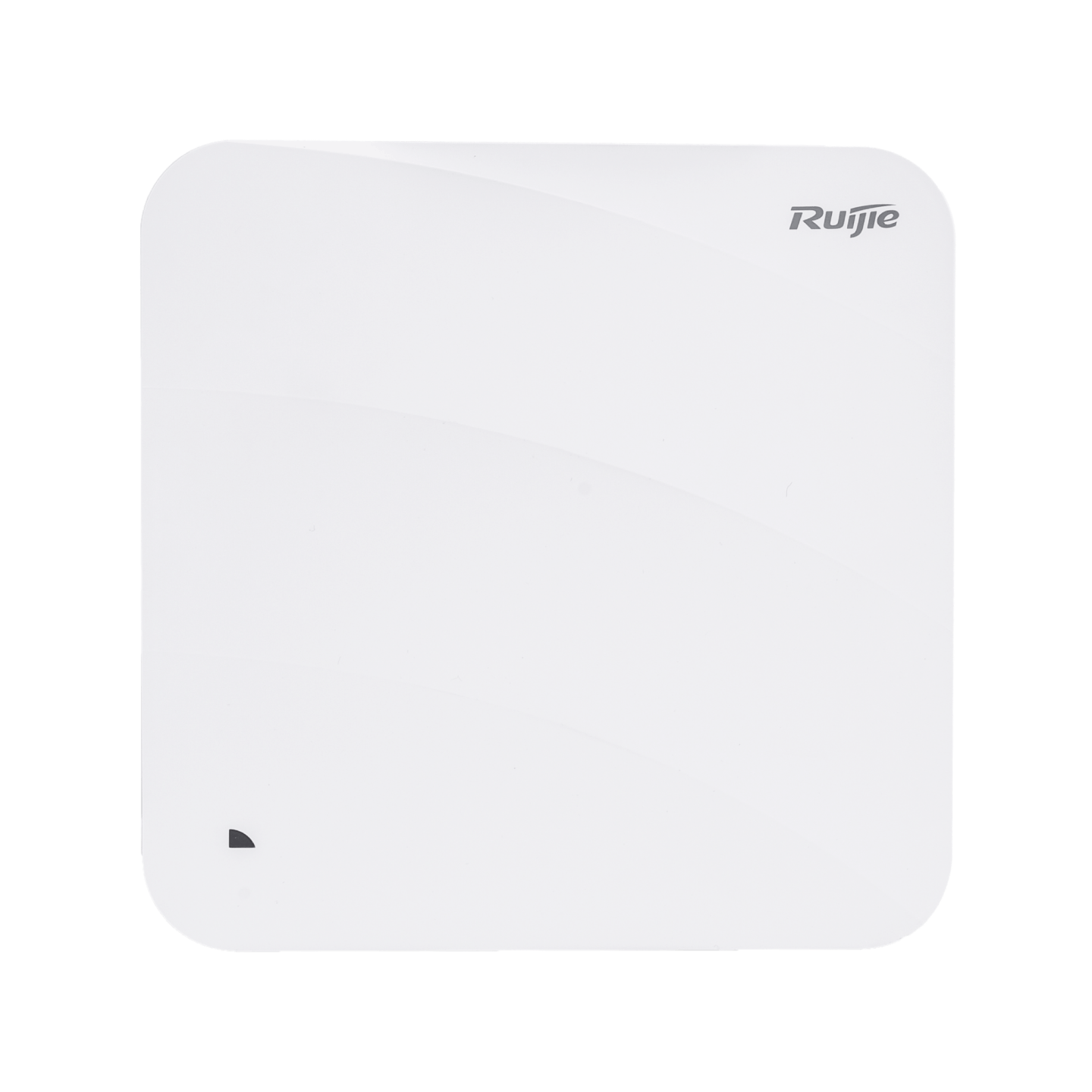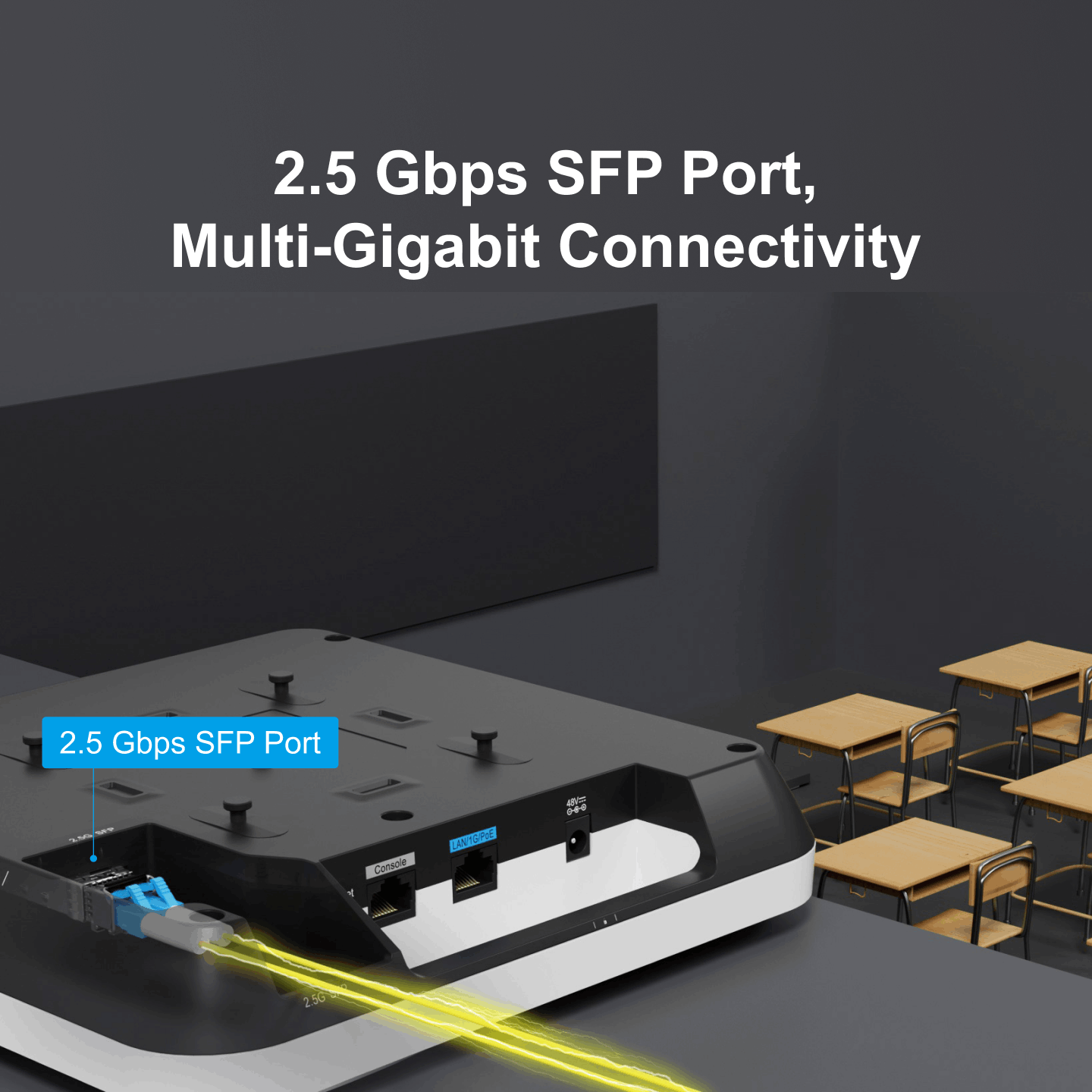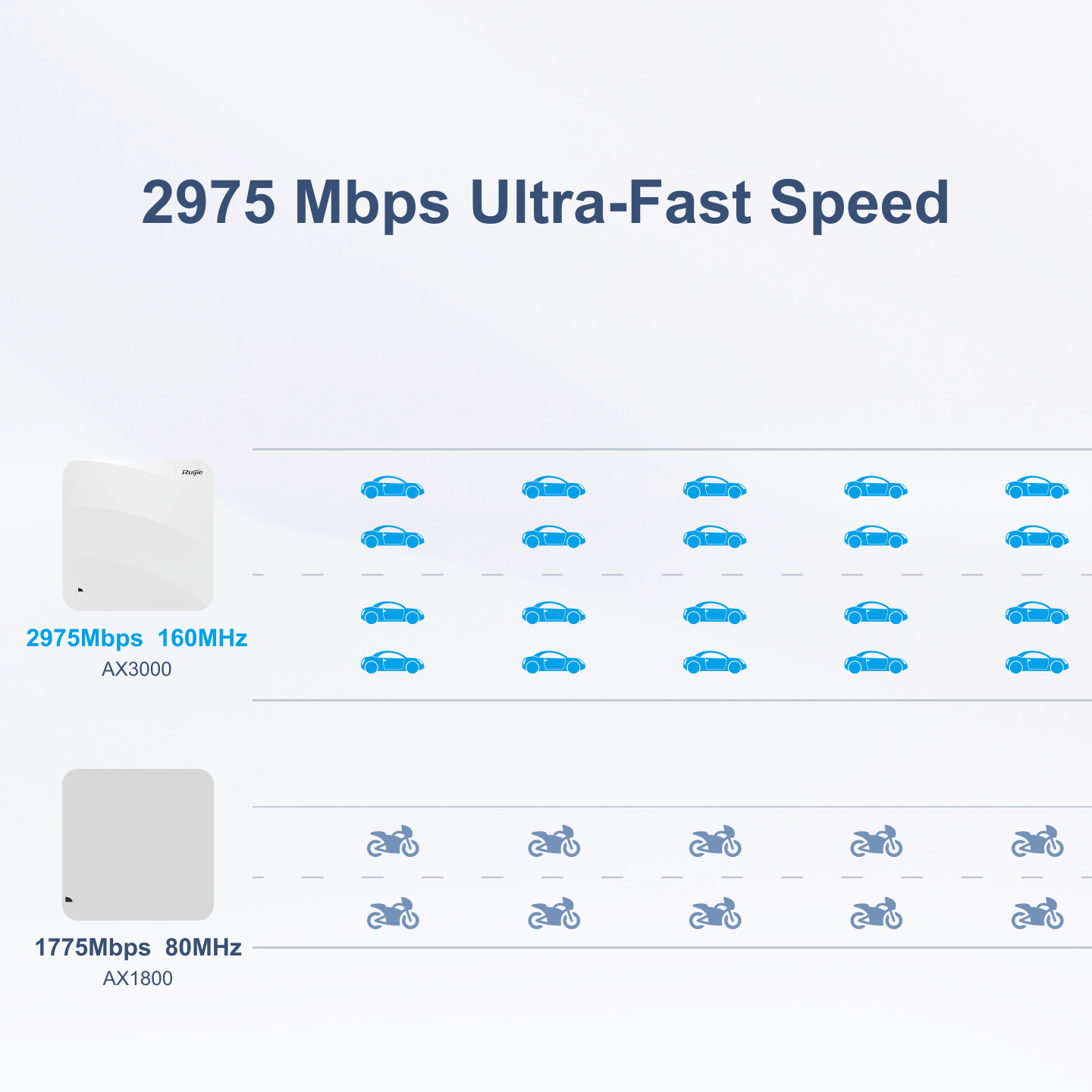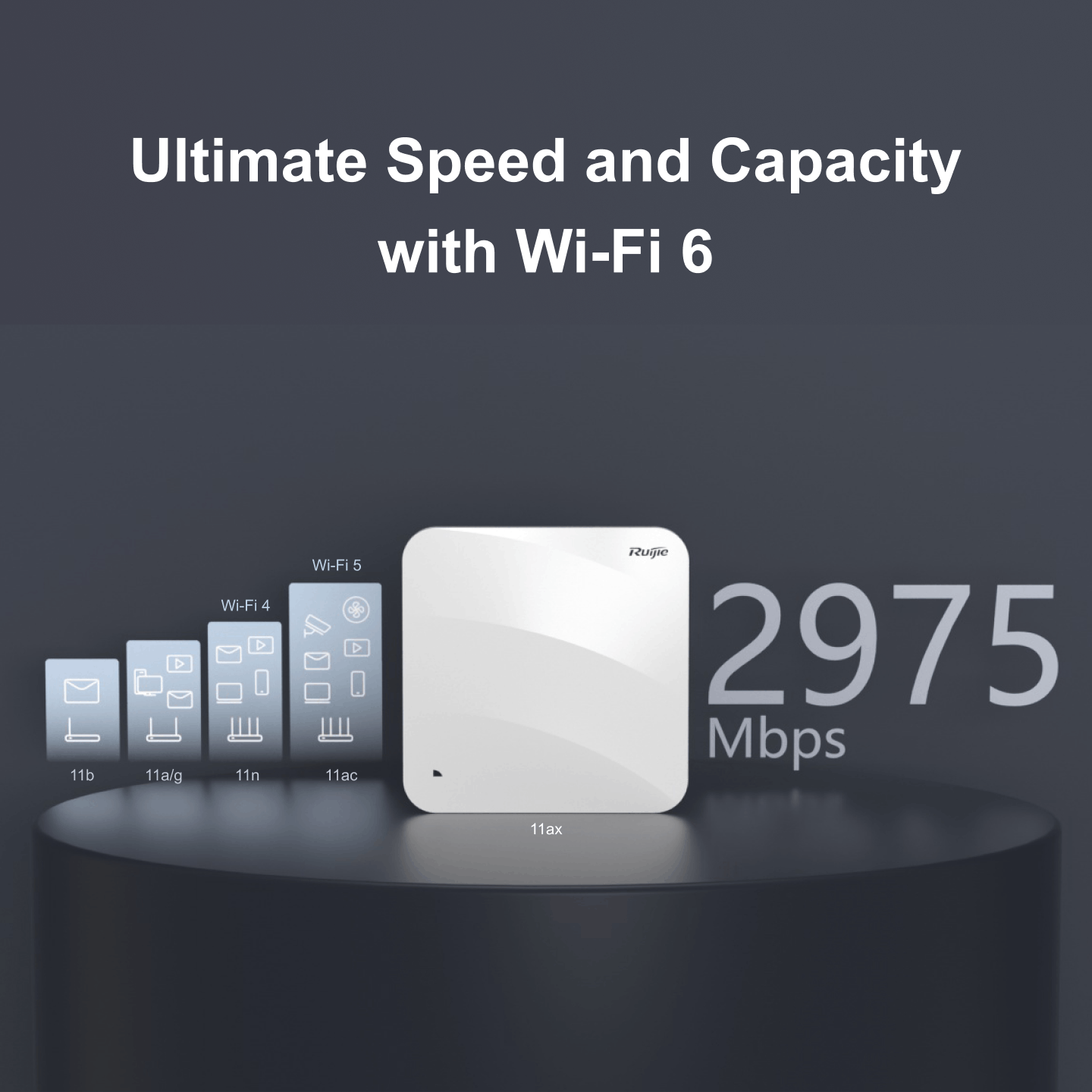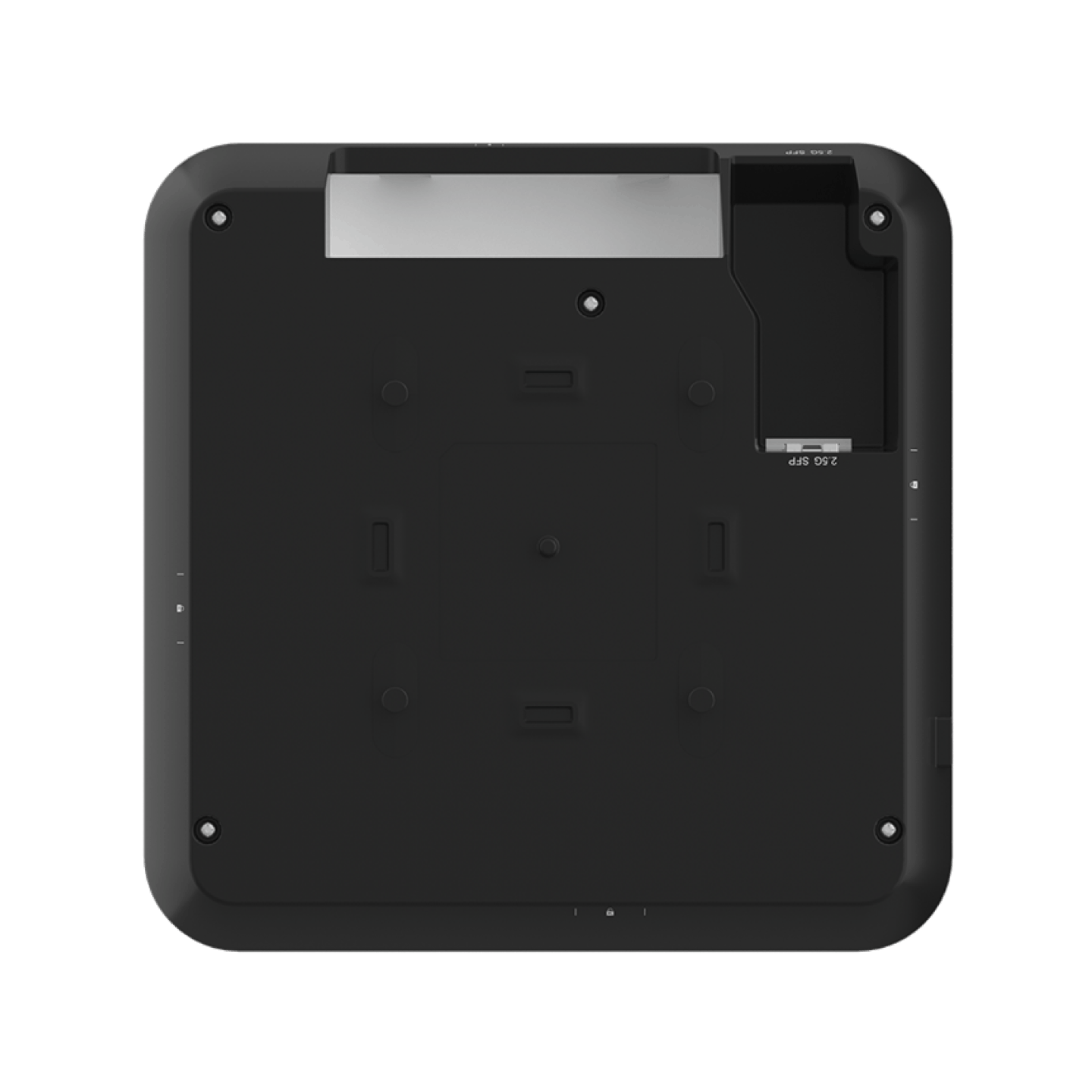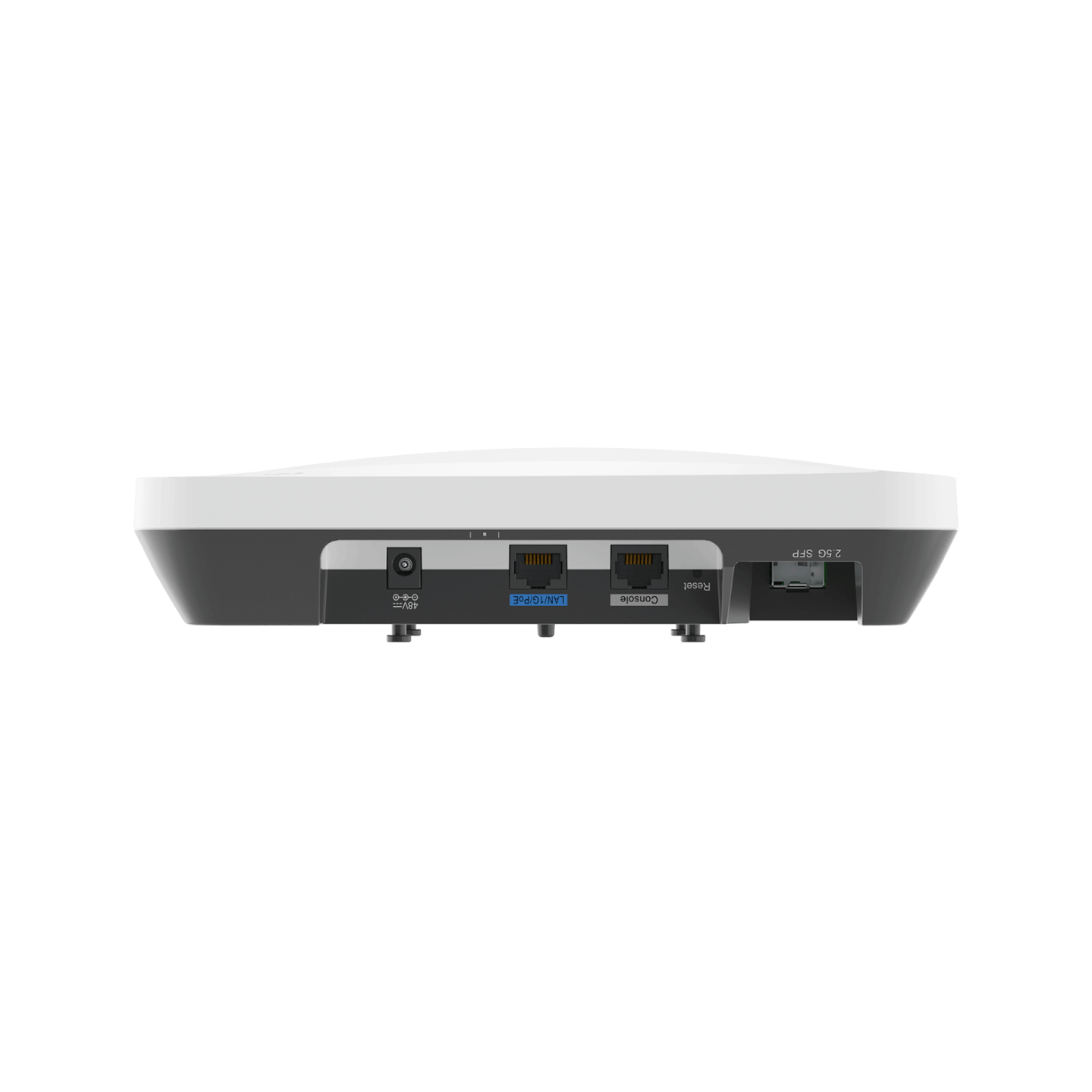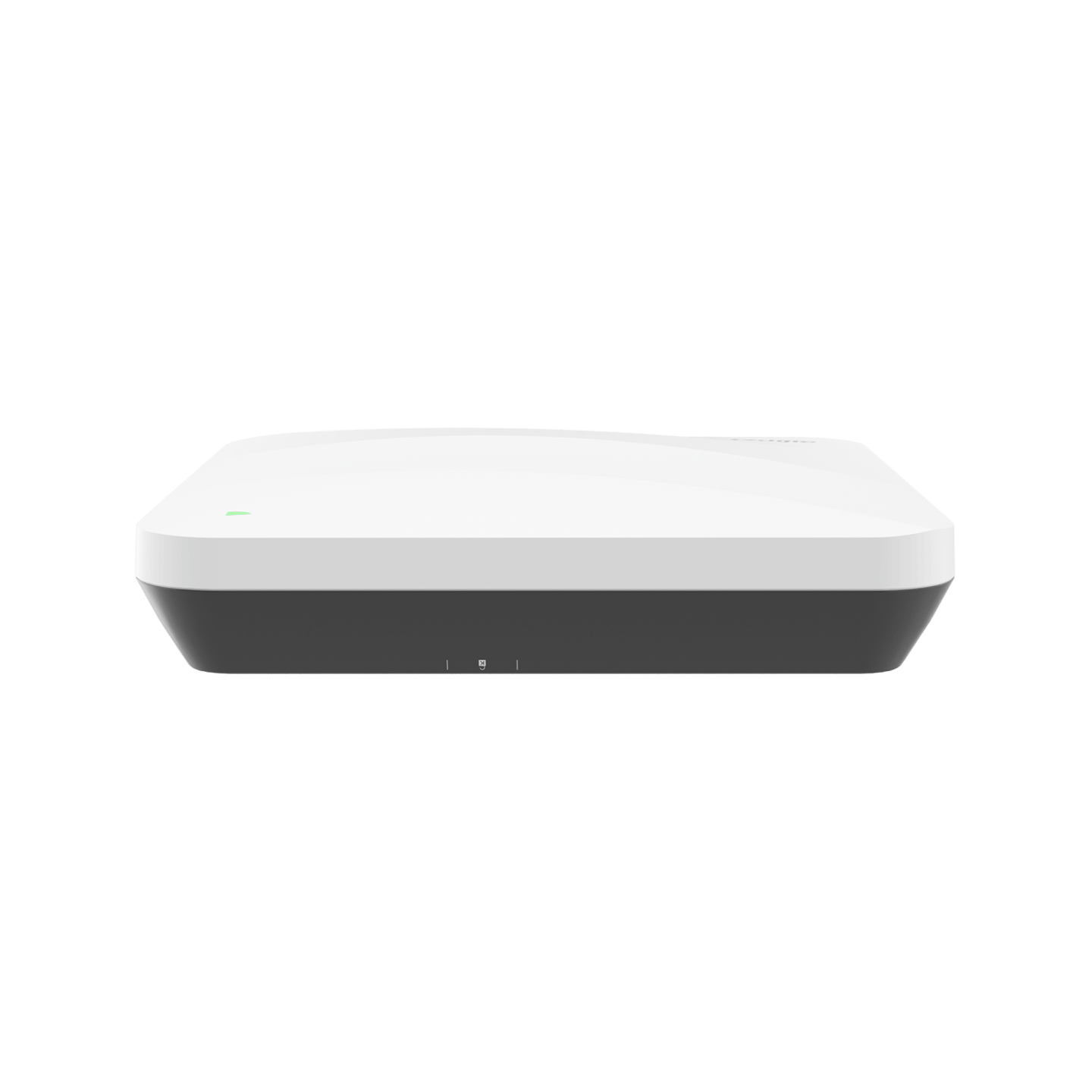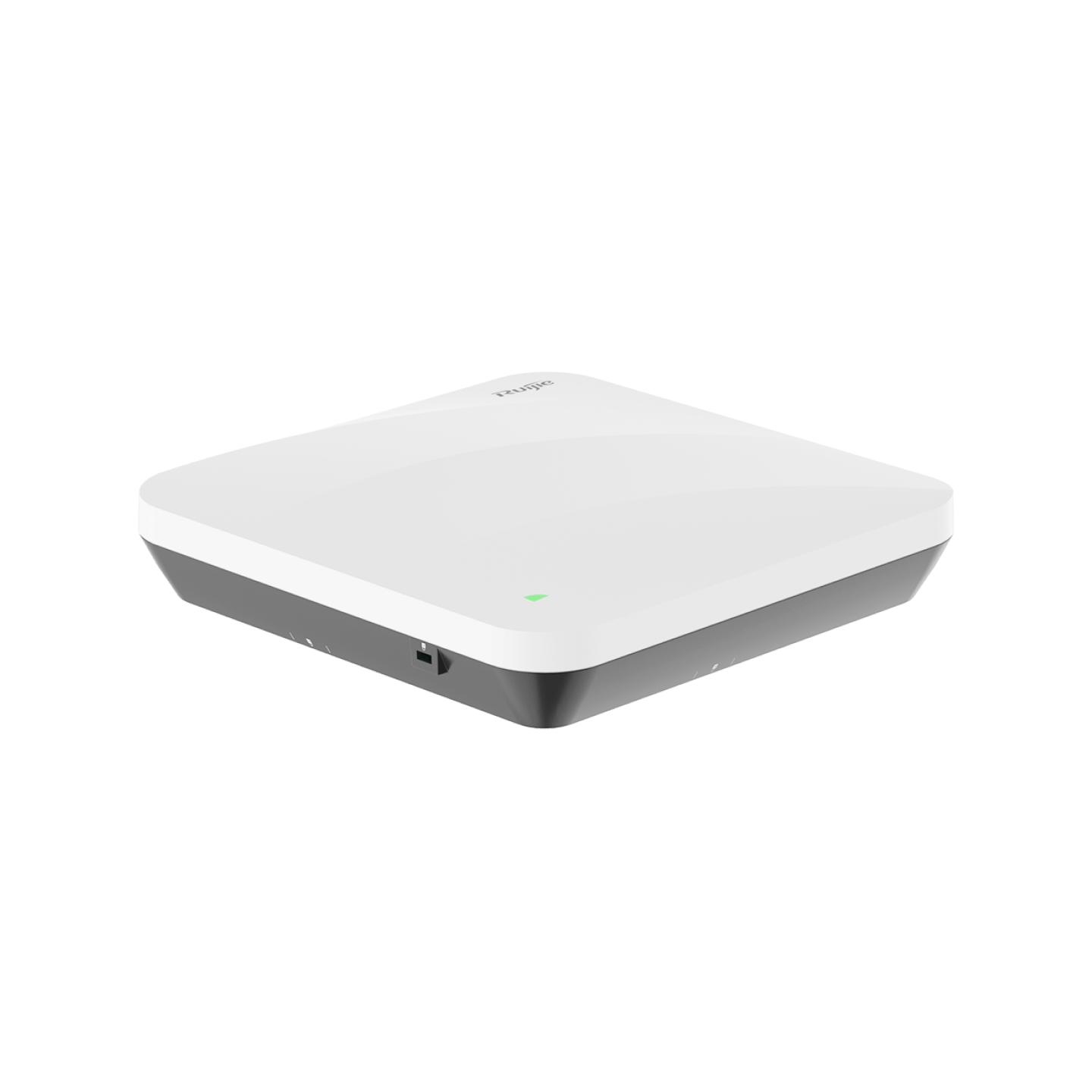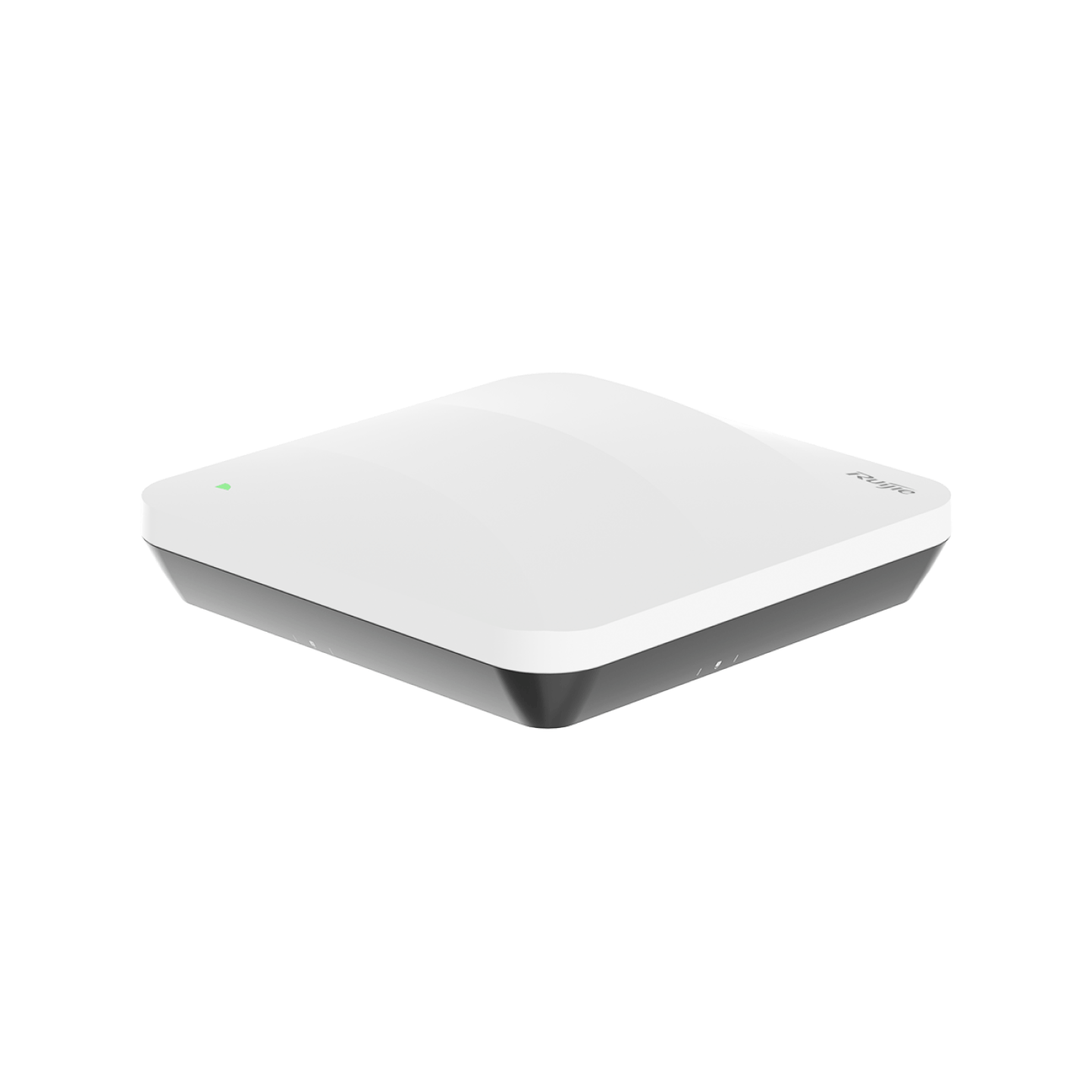Ruijie Wi-Fi 6 High Performance Indoor AP
2.5 Gbps SFP Port, Multi-Gigabit Connectivity
The 2.5 Gbps SFP port unleashes the performance of bandwidth for multi-gigabit connectivity.
2.976 Gbps Ultra-Fast Speed with 160 MHz Band
The next-generation AX3000 chip supports 160 MHz band, doubling the Wi-Fi speed.
Wi-Fi 6 dual radios enable a combined rate of 2.976 Gbps, delivering smooth video streaming, instant audio messaging, and file download in seconds.
Ultimate Speed and Capacity with Wi-Fi 6, Up To 2.976 Gbpss
Gbps
Signals Never Drop with Seamless Roaming
The built-in smart antenna can identify the direction of STAs relative to the AP. With Ruijie's proprietary roaming algorithm, this AP also supports 802.11k/v/r. Intelligent channel planning and accurate wireless positioning enable STAs to associate to the best AP nearby.
Cloud, Making Your Business Easy
- Remote monitoring
- Remote Wi-Fi management
- Cloud portal authentication
- Wireless intelligent optimization
